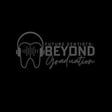
Residency
About the Hosts:
In this episode of "Beyond Graduation," listeners are introduced to two seasoned dental professionals, Dr. Savanah Craig and Dr. Ronnetta Sartor. Dr. Craig, fresh from a General Practice Residency (GPR) program, speaks from her recent experience and its profound impact on her career, particularly in the context of private practice. Dr. Sartor brings a wealth of knowledge, reflecting on the substantial growth and assurance gained from her own time in a residency program as well as her practice in a rural area. Both doctors highlight their commitment to continuous learning and patient care, sharing insights gleaned from their careers in dentistry.
Episode Summary:
In this enlightening episode of "Beyond Graduation," Dr. Savanah Craig and Dr. Ronnetta Sartor delve into the transformative journey of General Practice Residency (GPR) programs and their long-standing influence on dental careers. The conversation opens with a candid reflection on personal and professional development, with Dr. Sartor advocating for the confidence boost and comprehensive knowledge she attained that propelled her to practice adeptly in a rural setting.
Further into the discussion, the doctors dissect the myriad benefits of GPR, from knowing one's limits and pushing clinical boundaries to managing complex patient cases with ease.
Key Takeaways:
- GPR programs are instrumental in building confidence and competency in young dentists, particularly for those serving rural communities or requiring additional mentorship post-dental school.
- Hands-on experience during residency helps distinguish personal and professional boundaries, reinforcing the significance of understanding and enforcing limitations in practice.
- Lifelong learning and continuous education, evidenced by participation in advanced dental courses, are vital for remaining at the forefront of evolving dental practices and technologies.
- Choosing the right residency program hinges on aligning with one’s aspirations and personal goals, emphasizing the need for thorough research and consideration of each program’s offerings.
- Residency emphasizes the collaborative nature of dentistry, highlighting the necessity to consult with specialists and integrate holistic treatment plans for comprehensive patient care.
The following resource is mentioned in this episode for those considering a residency program:
- Connect with Ignite DDS: @ignitedds or at www.ignitedds.com
- Connect with the Residency Guide and Beyond Graduation eBook: www.ignitedds.com/ebooks
If you are encouraged by the engaging dialogue between Dr. Craig and Dr. Sartor, we invite our audience to delve into the full episode of "Beyond Graduation" for valuable insights into the role GPR programs play in shaping confident and preparing dental professionals. Stay tuned for more thought-provoking content as we continue to explore the realm of postgraduate dental education and its far-reaching effects on career development.

